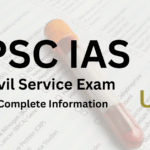In today’s unpredictable world, a medical emergency can strike without warning—and without financial preparedness, even a short hospital stay can become a burden. That’s where medical insurance comes in.

Whether you’re an individual, a family, or a business owner looking for employee coverage, understanding medical insurance plans is crucial. This comprehensive guide will walk you through everything you need to know: from types of health insurance and key terminologies to claim processes, tax benefits, and how to choose the right plan.
What Is a Medical Insurance Plan?
A medical insurance plan is a contract between an individual and an insurance provider that covers healthcare expenses in exchange for a premium. Depending on the policy, it may cover hospitalisation, surgeries, doctor consultations, prescription drugs, maternity care, critical illnesses, and more.
Why Is Medical Insurance Important?
1. Rising Healthcare Costs
India’s medical inflation is one of the highest in Asia, with healthcare costs rising by over 14% annually. In the U.S., a simple ER visit can cost upwards of $1,000 without insurance.
2. Financial Protection
Without health insurance, a medical emergency can deplete your savings. A well-chosen plan covers everything from hospitalization to diagnostics and post-hospital care.
3. Cashless Treatment
Most insurers offer cashless hospitalization at network hospitals, saving you from paying out-of-pocket expenses upfront.
4. Tax Benefits
Under Section 80D of the Indian Income Tax Act, policyholders can claim deductions on premiums paid.
Types of Medical Insurance Plans
Understanding the different types of plans helps you choose one that matches your needs and budget.
1. Individual Health Insurance
Covers one person. Best for single individuals or those with specific medical needs.
2. Family Floater Plan
Provides coverage for the entire family under a single sum insured. Ideal for nuclear families.
3. Group Health Insurance
Typically provided by employers, covering all employees under a master policy.
4. Senior Citizen Health Insurance
Specialized coverage for individuals aged 60+. Includes additional features like domiciliary care and critical illness.
5. Critical Illness Insurance
Covers life-threatening diseases like cancer, heart attack, or stroke with a lump sum on diagnosis.
6. Top-Up Plans
An additional policy to supplement your existing coverage. It kicks in once the base coverage is exhausted.
Key Terminologies You Should Know
Understanding policy jargon is essential:
| Term | Meaning |
|---|---|
| Premium | The amount paid to the insurer for coverage. |
| Sum Insured | The maximum amount the insurer will pay annually. |
| Deductible | A fixed amount you must pay before the insurance kicks in. |
| Network Hospital | Hospitals tied with the insurer offering cashless services. |
| Waiting Period | The time before you can claim certain benefits (e.g., pre-existing conditions). |
| Co-pay | The percentage of claim amount you pay; the insurer pays the rest. |
What Does a Medical Insurance Plan Cover?
Coverage depends on the insurer and plan chosen. Most comprehensive policies include:
- Hospitalization expenses (room rent, ICU, surgery, doctor fees)
- Day-care procedures
- Pre- and post-hospitalization expenses
- Ambulance charges
- Maternity and newborn care
- Organ donor expenses
- Alternative treatment (AYUSH) in some cases
What Is Not Covered in Medical Insurance?
Exclusions vary, but common ones include:
- Pre-existing diseases during the waiting period
- Cosmetic or plastic surgery
- Dental treatments (unless due to an accident)
- Injuries due to self-harm or substance abuse
- Experimental treatments
- HIV/AIDS and related conditions
For a detailed list, always read the policy wording.
How to Choose the Right Medical Insurance Plan
Here are key points to consider:
1. Coverage Amount (Sum Insured)
With rising costs, experts recommend a minimum of ₹5-10 lakh per person in India or $100,000-$500,000 in the U.S.
2. Network Hospitals
Ensure your preferred hospital is included in the insurer’s network.
3. Claim Settlement Ratio (CSR)
A higher CSR (above 90%) means the insurer settles more claims successfully. Check IRDAI’s latest report here.
4. Sub-limits and Co-payments
Some plans have caps on room rent, doctor fees, or impose co-pay clauses. Avoid plans with too many sub-limits.
5. Waiting Period
Look for policies with a shorter waiting period, especially for maternity and pre-existing conditions.
6. Cashless Claim Facility
A seamless cashless claim facility at network hospitals ensures peace of mind during emergencies.
How Does the Claim Process Work?
Cashless Claim Process:
- Hospitalization at a Network Hospital
- Show Health Card & ID Proof
- TPA (Third Party Administrator) approves claim
- Insurance company settles bills directly
Reimbursement Claim Process:
- Pay the medical bills upfront
- Submit documents (bills, prescriptions, discharge summary)
- Get reimbursed by the insurer
For a detailed step-by-step process, visit Policybazaar Claim Guide.
Tax Benefits of Health Insurance (India)
Under Section 80D of the Income Tax Act:
| Insured Person | Deduction Limit |
|---|---|
| Self & Family (below 60 years) | ₹25,000 |
| Parents (above 60 years) | ₹50,000 |
| Total Possible Deduction | ₹75,000 |
Preventive health check-ups also qualify for deductions up to ₹5,000 (included within the limits).
Top Medical Insurance Providers in India (2025)
Here’s a list of reliable health insurers:
| Company | Notable Plans |
|---|---|
| Star Health | Family Health Optima |
| HDFC ERGO | Health Suraksha |
| Niva Bupa (Max Bupa) | Health Companion |
| Care Health Insurance | Care Advantage |
| Aditya Birla Health | Active Health Platinum |
Refer to comparison sites like Policybazaar or Coverfox for up-to-date reviews.
Top Health Insurance Companies in the U.S.
If you’re in the United States, consider these:
| Company | Notable Features |
|---|---|
| Blue Cross Blue Shield (BCBS) | Nationwide coverage, trusted by many |
| UnitedHealthcare | Largest network of providers |
| Kaiser Permanente | Excellent customer satisfaction |
| Cigna | Affordable family plans |
| Aetna | Great for employer-sponsored plans |
Use Healthcare.gov to compare plans and check subsidies.
Mistakes to Avoid While Buying Medical Insurance
- Underinsuring Yourself: Don’t choose a lower sum insured to save on premiums.
- Ignoring Sub-limits: Watch out for hidden caps.
- Not Disclosing Health History: Could lead to claim rejection.
- Delaying the Purchase: Premiums rise with age; early buying ensures lifelong renewability.
- Not Reading Policy Wording: You must read and understand all terms and exclusions.
Can NRIs Buy Health Insurance in India?
Yes, Non-Resident Indians (NRIs) can buy health insurance in India. However, claims are admissible only for treatments availed in India unless specified otherwise.
Tip: If you’re based abroad for long periods, also consider international plans from companies like Allianz, Cigna Global, or Tata AIG Travel Insurance.
New Trends in Health Insurance (2025)
1. OPD Coverage
Outpatient treatments are now included in many comprehensive plans.
2. Digital-First Policies
From buying to claims, everything is now paperless and app-based.
3. Wellness Benefits
Insurers offer discounts on premiums for tracking fitness, gym visits, or no-claim years.
4. Mental Health Coverage
Mental health has been mandated by IRDAI to be covered under all health policies.
Frequently Asked Questions (FAQs)
1. Is employer-provided health insurance enough?
It may not be sufficient in terms of coverage or flexibility. Always supplement with a personal policy.
2. Can I switch my health insurer?
Yes. IRDAI allows portability of health insurance without losing continuity benefits.
3. What is a no-claim bonus (NCB)?
It’s a reward for not making any claim in a policy year—your sum insured increases without extra premium.
4. Are maternity expenses covered?
Yes, but after a waiting period of 9 months to 4 years, depending on the policy.
Conclusion: Protect Your Health and Your Finances
Choosing the right medical insurance plan can mean the difference between financial disaster and peace of mind during a health crisis. Whether you’re a young adult just starting out or a family with dependents, there’s a plan for everyone.
Don’t wait for a medical emergency. Compare, understand, and invest in the best policy for your needs.



